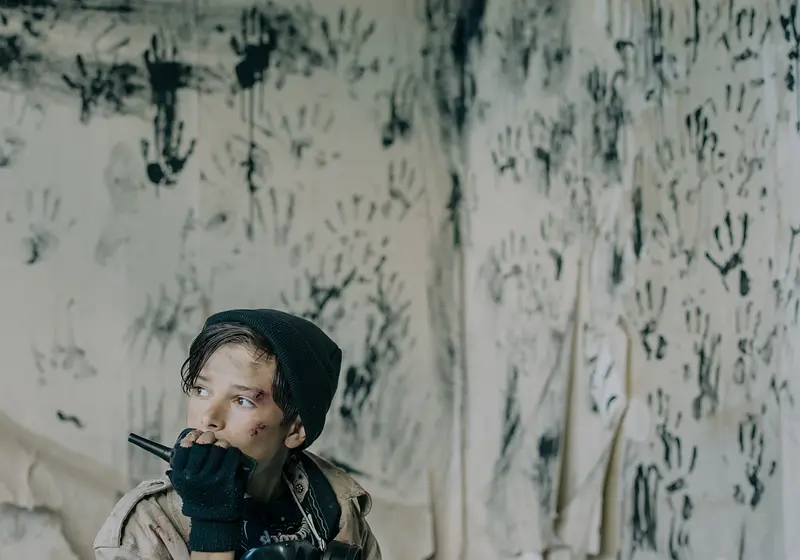In a day and age where individualistic achievements are seen as more worthy of applause, some researchers worry how this may have an effect on empathy as a whole. The youth have gathered fewer community points over the years, simply due to the fact that they have been focusing on their own well being, without much thought given to how their achievements could benefit society.
Let us slide into your dms 🥰
Get notified of top trending articles like this one every week! (we won't spam you)Why is empathy important?
Before we dive into our topic, let's take a look as to why empathy is important to begin with. Empathy's Google definition is the ability to share and understand the feelings of another. While this is correct, it barely scratches the surface.
Empathy is drastically different from sympathy in the sense that action is taken in response to the feeling. Thinking from a logical perspective, if no one in the world had empathy, people wouldn't help each other at all, leading to catastrophic statistics, namely higher death rates, increased mental illness disorders, decreased sociability and much more.
Empathy can take form in the simplest things, such as asking if someone is okay when they trip, to more substantial situations like calling the police when you hear a violent fight break out. In short, empathy is important for facilitation.
Photo by: Duncan Shaffer

Take the Quiz: Which Female Character Trope Do You Belong To?
Whether it's in film, TV, or literature, you've likely come across these female character tropes. Take this quiz to discover which one best matches...
How is empathy decreasing nowadays?
Empathy has been pushed much further down the priority list. Whether done unintentionally by parents during childhood or just growing to realize that it shouldn't occupy the top 5 in the list, let alone number one. However, Michelle Borba, author of 'UnSelfie, Why Empathetic Kids Succeed in Our All-About-Me World' mentions that the leading cause of the apparent lack of empathy we see today happens because kids are not actually taught how to be empathetic in schools or at home. If you take a look at a school's list of priorities, for example, you will almost always see that their primary concern is how they can ensure students maintain and build a respectable academic record. Now this isn't wrong, not at all, it's even quite good, because in a way, they're concerned about the quality of knowledge their students are receiving and making sure the students are properly retaining it. It's preparation for their future studies and/ or plans.
Yet, when schools focus solely on this aspect, they do not give enough time or sometimes even forget to build empathetic characters. Kids now are so focused on doing well in their own studies, that everything else seems irrelevant. Another kid in the class could be struggling with a subject, and unfortunately, none of his peers will help him.
Some may argue that it's not their responsibility and help should come directly from the teacher. How about helping alongside the teacher? Maybe another kid could have techniques the teacher did not implement that would aid the struggling kid to do better.
Because if we keep telling ourselves we're not responsible and passing responsibility to other people, eventually there will come a point where there is no one left to pass the responsibility to. And in the meantime, the person you could have helped has reached a point of no return.
Think about it, we always hear people congratulating kids on their academic milestones, but rarely do we hear, "I'm so proud that they helped a person in need". And because of that rare acknowledgment of children' actions towards people, they grow up to think of empathy as less important.
Photo by: RODNAE Productions
The bystander effect
One of the phenomena that has surfaced due to the lack of empathy is something called The Bystander Effect. It's the tendency to be less willing to assist someone in need when there are other people around. Psychologists Latane and Darley ascribed the distribution of blame and social influence as the causes of this effect when studied back in 1968. The former cause is what we mentioned above. When people are not able to put themselves in another person's shoes entirely, they will diffuse responsibility, and this effect is multiplied in large groups. However, this dynamic changes if the person is a friend. Quite strange, especially since both are, in the end, a person in need.
The Bystander Effect also takes form in more indirect methods. For example, when someone sees a homeless person on the street, they don't provide any action to help because, "someone else will do it" or "this is the government's responsibility". Although we can't always say that the effect is caused by lack of empathy or diffusion of responsibility. Sometimes, bystanders are not able to take action because they are overwhelmed at the moment and don't know how to help.
This effect can also affect kids. According to an experiment done by Staub, to determine whether this effect is nature or something that develops with age, the latter is the leading result. 90% of children in the second grade run to help, and this number drops all the way to 30% of kids by the sixth grade. Staub was adamant that we keep on encouraging kids to be socially responsible, so the empathy gap does not keep increasing.
Take Rachel Wheeler. A 9-year-old who raised over $250,000 to build 27 concrete, two-room homes in a village in Haiti. And she did all this after she found out that some Haitian kids eat mud cookies and live in cardboard houses. "You can't just sit around and think about doing it, you got to actually get out there and do it." Rachel said. Three years later, the neighborhood dubbed Rachel's Village came to rise.
Photo by: Kaique Rocha
How can we introduce a change-making mindset?
Michelle Borba has written about these four fool-proof and tried steps to re-introduce empathy in someone or even yourself.
Firstly, teach it to yourself. Just like practicing an instrument or practicing a topic that you don't understand in school, portraying empathy cannot be done once or twice for it to reach its full potential. You need to consistently portray it without picking and choosing who you want to help.
That is true empathy. A person may even help someone in possibly the wrong way, but it's important to realize that not only is it the intention that counts, but also with practice, makes perfect.
Second, emphasize effort. This is more of a step to revive empathy in other people. For example, your younger sibling got up from their seat on a bus to give it to a pregnant woman.
Saying something like, "You're really making an effort to help others, look at how your kindness made that woman much more comfortable!". Don't focus on end results, especially when it comes to something that involves quantity. Such as, "You delivered fifty pillows today!" This can give the wrong message that empathy is only useful or good when it involves large numbers of objects. You may accidentally demotivate someone who has not done as much, and they may feel as if they haven't done enough.
Third, encourage practice. Nancy Eisenberg once said, "Children who view themselves as altruistic are likely to assist in the future, because people generally want to behave in ways that are consistent with their self-image." You can attempt to adopt or encourage an altruistic nature by putting a box in your home to put in unwanted clothes anymore and donate them, for example.
Fourth and last, recap the impact. Dr. Ervin Staub discovered that kids who are given the chance to be helpful often grow more helpful, especially if the results of their good deeds are highlighted. So you may encourage someone to reflect on their servicing experiences by asking them questions, for instance, "How do you think you made them feel?", "Are you happy with what you did?". These questions do not only highlight the actions, but also force the person to think about future actions and grant them more ability to be empathetic.
In the end
Empathy is a natural and built-in characteristic. Experiments done with newborn babies proves this. When a crying baby is brought next to another infant, the latter later then cries as well, because they are able to feel the pain like their own.
Now, whether this heartwarming characteristic is dulled or sharpened throughout life, it can have very different outcomes, and not just for ourselves, but for the entirety of society. We must go about checking our empathy levels, and make sure they do not drop under a certain level, otherwise, the priceless value of people drops in our vision.












